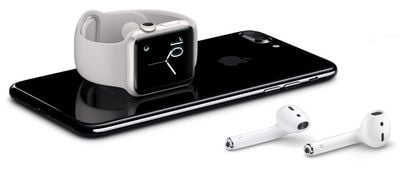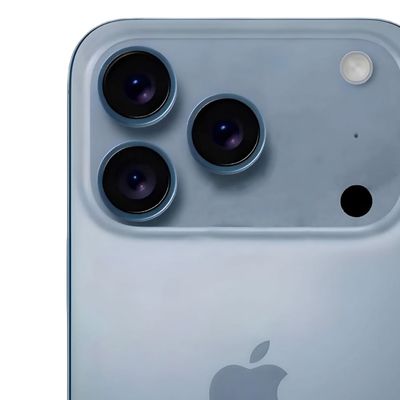A new NFC specification announced this week by the NFC Froum will allow future NFC enabled devices to offer wireless charging capabilities, which means a smartphone could be used to charge a small accessory like headphones.

According to the NFC Forum, the Wireless Charging Specification (WLC) will allow smartphones or other NFC charging devices to wirelessly charge small, battery-powered consumer and IoT devices at a power transfer rate of up to one watt.
The 1W rating is much slower than the Qi-based standard used by iPhones and other smartphones. Qi-based wireless charging on the iPhone maxes out at 7.5W, but is even faster on some Android devices.
Charging over NFC would require new hardware, and it's not a feature that can be added to existing devices. The NFC Forum believes the WLC specification could be used to complement Qi-based wireless charging.
It works using a single antenna to manage communications and charging, which is convenient for low-power devices like smart watches, fitness trackers, and earbuds that already use NFC for connectivity because there's no need to build in Qi support.
"The NFC Forum's Wireless Charging Technical Specification allows for wireless charging of small battery-powered devices like those found in many of the estimated 36 billion IoT devices in use today," said Koichi Tagawa, chair, NFC Forum. "NFC wireless charging is truly transformative because it changes the way we design and interact with small, battery-powered devices as the elimination of plugs and cords enables the creation of smaller, hermetically-sealed devices."
Apple in 2015 joined the NFC Forum and participates in the approval of new NFC specifications and developments.
Rumors in 2019 suggested that Apple was working on bilateral wireless charging that would allow its iPhones to charge the AirPods and the Apple Watch, but the feature was ultimately nixed. At the time, Apple analyst Ming-Chi Kuo said that the two-way wireless charging feature Apple was exploring did not meet Apple's requirements.
Samsung has implemented bilateral wireless charging in its smartphones, but the Wireless PowerShare option does not use NFC and is powered by the Qi-based charging coils in the device. Samsung's smartphones can charge other smartphones or accessories like headphones that support Qi wireless chargers.





















